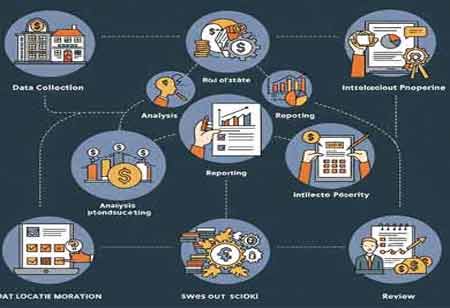CLOSE
Specials
- RegTech Europe
- Financial Risk Management APAC
- Investment Banking APAC
- Corporate Advisory APAC
- Regtech APAC
- Escrow Services
- Digital Banking Latam
- Trading Solutions APAC
- Treasury Management Europe
- CPA Firms Canada
- Financial Risk Management Europe
- Mortgage Broker
- Financial Licensing Europe
- RIA Advisory Europe
- FinTech Canada
- Financial Asset Management APAC
- Investment Banking Canada
- Payment Solution
- Lending Mangment Latam
- Payment Solution Europe
- Broker Dealer Firms Canada
- Alternative Investments Canada
- Financial Fraud
- Investment Management Latam
- Financial Health Europe
- Lending mangment
- Financial Marketing
- Proprietary Trading Europe
- Wealth Management
- FinTech
- Financial Brokerage Firm APAC
- Investment Advisory Europe
- Investment Advisory APAC
- Wealth Management MENA
- Claim Adjusting
- Claim Adjusting APAC
- Mergers and Acquisitions Consulting APAC
- Equipment Financing
- CPA Firms
- Mergers and Acquisitions Consulting Canada
- Investment Services
- Valuation Services Canada
- Wealth Management APAC
- Broker Dealer Firms
- Debt Collection Agencies
- Mergers and Acquisitions Consulting
- FinTech Europe
- Fintech Latam
- Financial Planning / Retirement
- Investment Management
- Financial Compliance
- Digital Banking Europe
- CFO Services
- Debt Collection Agencies Europe
- Wealth Management Europe
- Mergers and Acquisitions Consulting Europe
- Financial Restructuring Europe
- Financial Portfolio Management Canada
- Business Loan
- Payment and Card Latam
- Wealth Management Latam
- Mergers and Acquisitions Consulting Latam
- Tax Advisory Canada
- Trading Solutions Europe
- Alternative Investments
- Digital Insurance Europe
- Investment Services Latam
Weekly Brief
×Be first to read the latest tech news, Industry Leader's Insights, and CIO interviews of medium and large enterprises exclusively from Financial Services Review
Thank you for Subscribing to Financial Services Review Weekly Brief
Innovation in Treasury boosting the digital economy
In the digital economy, businesses are constantly seeking new ways to stand out from their rivals by offering innovative data-enabled services to their customers.

By
Financial Services Review | Tuesday, April 04, 2023
Stay ahead of the industry with exclusive feature stories on the top companies, expert insights and the latest news delivered straight to your inbox. Subscribe today.
Traditional businesses exploring the opportunities of digital technology should learn to explore the ways treasury functions can play a deeper role in transformation.
FREMONT, CA: In the digital economy, businesses are constantly seeking new ways to stand out from their rivals by offering innovative data-enabled services to their customers. These businesses, known as digital economy businesses (DEBs), rely heavily on their finance and treasury teams to enable the business models that are key to their success.
One reason finance and treasury teams are crucial to the success of DEBs is that service-based business models require a reimagining of the traditional buying process. Customers expect to have the agency manage digital transactions at their convenience and expect their payment details and buying history to be available at the point of sale. This shift towards service-based business models also means that businesses are increasingly buying digital services directly from other businesses through the internet of things (IoT) without the need for any human intervention.
As traditional industrial companies shift towards providing everything-as-a-service business models, treasury teams play a critical role in enabling this exchange of services and payments within an IoT-powered economy. However, this also means that treasury teams need to develop new skills and competencies to keep up with the changing landscape.
A recent DBS research showcases how many DEBs believe that their finance and treasury teams have an opportunity to take on a more prominent role in the strategic direction of digital transformation. However, many DEBs also believe that they have an urgent need to update the skills profile of their treasury teams to play a wider role in growth and transformation. Additionally, talent gaps have stopped some organisations from making more progress on digital transformation.
To attract and retain the brightest talent, DEBs need to create a culture of empowerment and delegate more responsibility to their treasury teams. In the DBS research, DEBs were more likely than traditional companies to say that delegation and empowerment of teams is a key element, from a corporate culture perspective, of supporting digital transformation.
DEBs are also exploring distributed ledger technologies and embedded finance, which may be attractive to recruits who want to experiment with these technologies. The increasing strategic importance of treasury also promises more engaging and purposeful work for those who join treasury teams at DEBs.
In conclusion, finance and treasury teams play a vital role in enabling the business models that are key to the success of DEBs. As these businesses continue to unlock new value from digital technology, treasury teams need to develop new skills and competencies to keep up with the changing landscape. DEBs that create a culture of empowerment and delegate more responsibility to their treasury teams are more likely to attract and retain the brightest talent, enabling them to stay ahead of the curve and continue to innovate. Traditional businesses exploring the opportunities of digital technology should learn from DEBs and ask how their treasury functions can play a deeper role in transformation.

Copyright © 2025 Financial Services Review. All rights reserved





